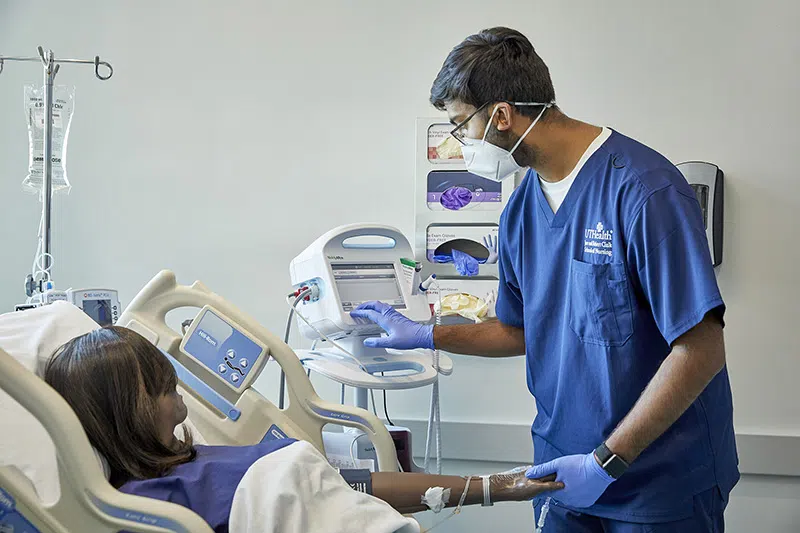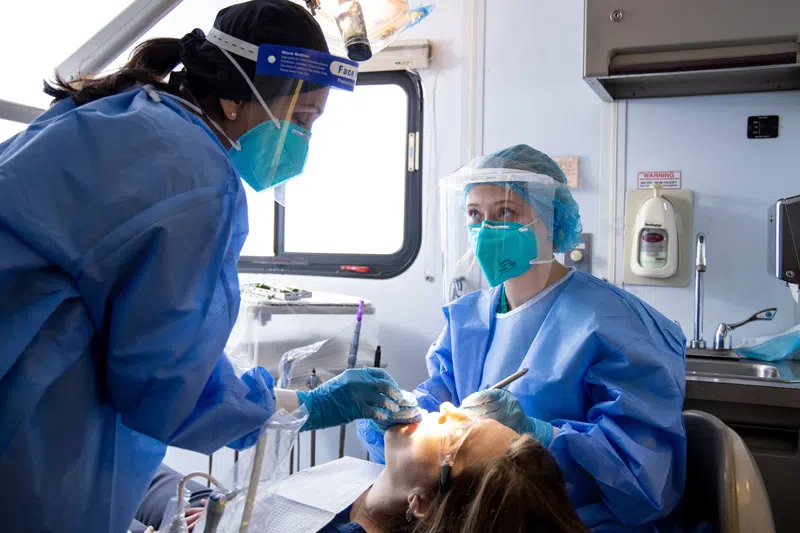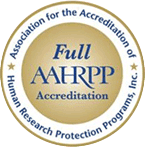POLICY
In addition to the criteria for review listed in the policy and procedure Initial Review, in order to approve research in which some or all of the participants are pregnant women, fetuses or neonates, the IRB must determine that all research is in compliance with this policy and procedure.
Key Terms
Dead Fetus -A fetus that exhibits neither heartbeat, spontaneous respiratory activity, spontaneous movement of voluntary muscles, nor pulsation of the umbilical cord.
Delivery - Complete separation of the fetus from the woman by expulsion or extraction or any other means.
Fetus - The product of conception from implantation until delivery.
Neonate – A new born.
Nonviable neonate - Means a neonate after delivery that, although living, is not viable.
Pregnancy - Encompasses the period of time from implantation until delivery. A woman shall be assumed to be pregnant if she exhibits any of the pertinent presumptive signs of pregnancy, such as missed menses, until the results of a pregnancy test are negative or until delivery.
Viable -,A neonate that is able, after delivery, to survive (given the benefit of available medical therapy) to the point of independently maintaining heartbeat and respiration.
Conditions for Involving Pregnant Women or Fetuses in Research: When pregnant women or fetuses are involved in research, the IRB must determine that all of the following conditions are met:
- Where scientifically appropriate, preclinical studies, including studies on pregnant animals, and clinical studies, including studies on non-pregnant women, have been conducted and provide data for assessing potential risk to pregnant women and fetuses; and
- The risk to the fetus is caused solely by interventions or procedures that hold out the prospect of direct benefit for the woman or the fetus; or if there is no such prospect of benefit, the risk to the fetus is not greater than minimal and the purpose of the research is the development of important biomedical knowledge which cannot be obtained by any other means; and
- Any risk is the least possible for achieving the objectives of the research; and
- No inducements, monetary or otherwise, will be offered to terminate a pregnancy; and
- Individuals engaged in the research will have no part in any decisions as to the timing, method, or procedures used to terminate a pregnancy; and
- Individuals engaged in the research will have no part in determining the viability of the neonate.
Research Involving Neonates of uncertain viability and nonviable neonates – When research involves neonates of uncertain viability and nonviable neonates, the IRB must determine that all of the following conditions are met:
- Where scientifically appropriate, preclinical and clinical studies have been conducted and provide data for assessing potential risks to neonates; and
- Each individual providing consent is fully informed regarding the reasonably foreseeable impact of the research on the neonate; and
- Individuals engaged in the research will have no part in determining the viability of a neonate; and
- The requirements of the paragraphs of this policy on neonates of uncertain viability or nonviable neonates have been met as applicable.
Research Involving Neonates of Uncertain Viability: Until it has been ascertained whether or not a neonate is viable, a neonate may not be involved in research covered by this section unless the IRB determines that all of the following criteria are met:
- The research holds out the prospect of enhancing the probability of survival of the neonate to the point of viability, and any risk is the least possible for achieving that objective, or
- The purpose of the research is the development of important biomedical knowledge which cannot be obtained by other means and there will be no added risk to the neonate resulting from the research.
- The legally effective informed consent of either parent of the neonate or, if neither parent is able to consent because of unavailability, incompetence, or temporary incapacity, the legally effective informed consent of either parent’s legally authorized representative is obtained. The consent of the father or his legally authorized representative need not be obtained if the pregnancy resulted from rape or incest.
Research Involving Nonviable Neonates: After delivery, nonviable neonates may not be involved in research unless, the IRB determines that all of the following additional conditions are met:
- Vital functions of the neonate will not be artificially maintained; and
- The research will not terminate the heartbeat or respiration of the neonate; and
- There will be no added risk to the neonate resulting from the research; and
- The purpose of the research is the development of important biomedical knowledge that cannot be obtained by other means; and
- The legally effective informed consent of both parents of the neonate is obtained and cannot be waived or altered. However, if either parent is unable to consent because of unavailability, incompetence, or temporary incapacity, the informed consent of one parent of a nonviable neonate will suffice. The consent of the father need not be obtained if the pregnancy resulted from rape or incest.
- The consent of a legally authorized representative of either or both of the parents of a nonviable neonate will not suffice to meet the requirements of this paragraph.
Research Involving Viable neonates: A viable neonate may be included in research only to the extent permitted by and in accordance with the policy and procedure on research involving children.
Research involving the placenta, the dead fetus or fetal material after delivery: When information associated with these materials is recorded for research purposes in a manner that living individuals, including the mother can be identified, directly or through identifiers linked to those individuals, those individuals are research participants and all human research protection relevant policies and policies apply.
PROCEDURE
Submission: The Principal Investigator must complete the panel on research involving pregnant women, nonviable fetus or fetus of uncertain viability in the IRB application.
Review Process: IRB Staff will ensure that protocols involving pregnant women, human fetuses, neonates of uncertain viability, or nonviable neonates are reviewed by at least one member who has appropriate expertise. In addition to their responsibilities listed in policy and procedure for Initial Review, the reviewer shall determine if all the conditions set forth in this policy are met.
Documentation: Protocol specific findings for research involving pregnant women, fetuses or neonates will be documented in the meeting minutes.
Consent Requirements: When research involves pregnant women, fetuses or neonates, in addition to the requirements of the policy on informed consent, additional requirements of this policy must be met. Each individual providing consent must be fully informed regarding the reasonably foreseeable impact of the research on the fetus or neonate.
When the research holds out the prospect of direct benefit to the pregnant woman, the prospect of a direct benefit both to the pregnant woman and the fetus, or no prospect of benefit for the woman nor the fetus when risk to the fetus is not greater than minimal and the purpose of the research is the development of important biomedical knowledge that cannot be obtained by any other means, consent from the pregnant woman must be obtained according to the policy on informed consent.
When the research holds out the prospect of direct benefit solely to the fetus then the consent of the pregnant woman and the father is obtained in accord with policy on research involving children, except that the father's consent need not be obtained if he is unable to consent because of unavailability, incompetence, or temporary incapacity or the pregnancy resulted from rape or incest. When research involves children who are pregnant, assent and permission are obtained according to policy on research involving children.
Special circumstances - Research not otherwise approvable which presents an opportunity to understand, prevent, or alleviate a serious problem affecting the health or welfare of pregnant women, fetuses, or neonates needs approval by Secretary of the Department of Health and Human Services. The IRB should submit documentation to the Secretary certifying that the the IRB finds that the research presents a reasonable opportunity to further the understanding, prevention, or alleviation of a serious problem affecting the health or welfare of pregnant women, fetuses, or neonates. The Secretary, after consultation with a panel of experts in pertinent disciplines (for example: science, medicine, ethics, law) and following opportunity for public review and comment, including a public meeting announced in the Federal Register, has determined either:
- That the research, in fact, satisfies the conditions of §46.204, as applicable; or
- The following:
- The research presents a reasonable opportunity to further the understanding, prevention, or alleviation of a serious problem affecting the health or welfare of pregnant women, fetuses, or neonates; and
- The research will be conducted in accord with sound ethical principles; and
- Informed consent will be obtained in accord with the informed consent provisions of policy and procedure on Informed Consent.
Studies in which pregnancy is coincidental to subject selection - Any study in which women of childbearing potential are possible participants may inadvertently include pregnant women. Federal regulations require that, when appropriate, participants be provided a statement that the particular treatment or procedure may involve risks to the participant (or to the embryo or fetus, if the participant is or may become pregnant) which are currently unforeseeable as part of the informed consent process.
The IRB shall judge whether the mother’s participation would pose any risk to the fetus or nursing infant. In some studies, the IRB may need to assure that non-pregnant participants are advised to avoid pregnancy or nursing for a time during or following the research. Furthermore, where appropriate, participants should be advised to notify the PI immediately should they become pregnant. In some instances, there may be potential risk sufficient to justify requiring that pregnant women either be specifically excluded from the research or studied separately.
APPLICABLE REGULATIONS
- 45 CFR 46 Protection of Human Subjects
- 21 CFR 50 Protection of Human Subjects
- 21 CFR 56 Institutional Review Board
- FDA Draft Guidance - Pregnant Women: Scientific and Ethical Considerations for Inclusion in Clinical Trials
REFERENCE TO OTHER POLICIES
- Initial Review.
ATTACHMENTS
- Application Form Panel – Research Involving Pregnant Women.
If you find errors in this document, contact [email protected]
|
Document Number:
|
101-C09
|
|
Document Name:
|
Research Involving Pregnant Women, Fetuses and Neonates
|
|
Reviewed by:
|
Executive Director, Research Compliance
|
|
Effective:
|
1 Aug 2008
|
|
Revision History:
|
1 Jan 2009, 1 Aug 2011, 1 Jun 2016, 21 Jan 2018, 31 Jun 2021
|
CPHS HELPLINE 713-500-7943
iRIS HELPLINE 713-500-7960
UTHealth’s Compliance Hotline (1-888-472-9868)
IRB OFFICE HOURS Thursdays from 1 to 4pm, via the Teams Room at this link
How can we improve this site?


 Featured Donor
Featured Donor











